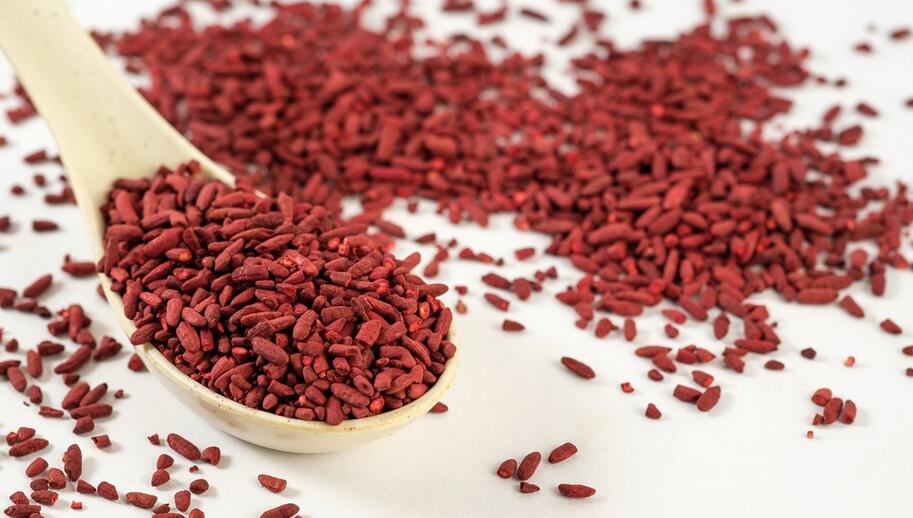Are you tired of dealing with the annoying symptoms of allergies? Sneezing, itchy eyes, and congestion can make everyday life a misery. While there are various traditional treatments available, many people are turning to natural remedies for relief. Essential oils have gained popularity in recent years for their therapeutic properties, including their ability to combat allergies. This article will explore 16 best essential oils for fighting against allergies and how to use them effectively.
Understanding Allergies
Before delving into the world of essential oils, it’s important to understand what allergies are and how they affect our bodies. Allergies occur when the immune system overreacts to a harmless substance, such as pollen, pet dander, or dust mites. This overreaction triggers a cascade of symptoms, including sneezing, itching, nasal congestion, and watery eyes.
Allergies can range from mild to severe, with some individuals experiencing life-threatening reactions known as anaphylaxis. It’s crucial to identify and avoid allergens whenever possible.

How Essential Oils Can Help Fight Against Allergies
Essential oils offer a natural and holistic approach to alleviating allergy symptoms. These potent plant extracts contain compounds that possess anti-inflammatory, antihistamine, and antimicrobial properties.
By using essential oils, you can not only relieve symptoms but also address the root causes of allergies. Additionally, essential oils are generally safe to use and have fewer side effects compared to conventional medications.
One of the primary benefits of essential oils is their ability to reduce inflammation in the body. When we encounter an allergen, our immune system produces histamine, which triggers an inflammatory response.
In addition to their anti-inflammatory properties, essential oils can also act as natural decongestants, antiseptics, and immune system boosters. Some essential oils have antimicrobial properties that can help clear the air of potential allergens or prevent secondary infections.
16 Best Essential Oils to Fight Against Allergies
Now that we understand the benefits of essential oils for allergies, let’s explore the top essential oils that can effectively combat allergy symptoms:
1. Peppermint Oil: A Refreshing Ally
Peppermint oil is a true powerhouse when it comes to alleviating allergy symptoms. Its cooling and refreshing properties can help clear nasal congestion and soothe respiratory discomfort. Simply inhale the invigorating aroma or add a few drops to a diffuser to enjoy its therapeutic benefits.
One user shared their experience: “I’ve struggled with seasonal allergies for years, but peppermint oil has been a game-changer. Just a few drops in my diffuser, and I can breathe easier almost instantly.”
2. Eucalyptus Oil: Nature’s Decongestant
Eucalyptus oil is renowned for its ability to clear nasal and sinus congestion, making it an excellent choice for allergy sufferers. Its potent anti-inflammatory and decongestant properties can help alleviate stuffiness and promote easier breathing.
Try adding a few drops of eucalyptus oil to a warm bath or using it in a steam inhalation session for maximum relief.
3. Lavender Oil: A Soothing Companion
Lavender oil is not only known for its calming and relaxing properties but also for its ability to alleviate allergy symptoms. Its anti-inflammatory and analgesic properties can help reduce nasal inflammation and soothe itchy, watery eyes.
Incorporate lavender oil into your daily routine by adding a few drops to a diffuser or applying it topically to the temples and back of the neck for a soothing experience.
4. Tea Tree Oil: A Natural Antihistamine
Tea tree oil is a powerful natural antihistamine, making it an excellent choice for combating allergy symptoms. Its anti-inflammatory and antimicrobial properties can help reduce nasal inflammation and alleviate respiratory discomfort.
Dilute a few drops of tea tree oil with carrier oil and apply it topically to the chest and back for relief from allergy-related congestion and discomfort.
5. Lemon Oil: A Breath of Fresh Air
Lemon oil is a refreshing and uplifting essential oil that can help alleviate allergy symptoms. Its anti-inflammatory and decongestant properties can help clear nasal congestion and promote easier breathing.
Add a few drops of lemon oil to a diffuser or inhale its invigorating aroma directly from the bottle for an instant pick-me-up during allergy season.

6. Frankincense Oil: An Ancient Remedy
Frankincense oil has been used for centuries in traditional medicine for its potent anti-inflammatory and immune-boosting properties. It can help reduce nasal and sinus inflammation, alleviate allergy symptoms and promote overall respiratory health.
Incorporate frankincense oil into your daily routine by adding a few drops to a diffuser or applying it topically to the chest and back for a soothing experience.
7. Chamomile Oil: A Gentle Soother
Chamomile oil is renowned for its gentle and soothing properties, making it an excellent choice for allergy sufferers. Its anti-inflammatory and antihistamine properties can help alleviate nasal inflammation, itchy eyes, and respiratory discomfort.
Add a few drops of chamomile oil to a warm bath or use it in a steam inhalation session for maximum relief from allergy symptoms.
8. Clove Oil: A Powerful Decongestant
Clove oil is a potent decongestant and anti-inflammatory essential oil that can help alleviate nasal and sinus congestion. Its warming properties can also provide relief from respiratory discomfort and promote easier breathing.
Dilute a few drops of clove oil with carrier oil and apply it topically to the chest and back for a soothing and decongestant experience.
9. Rosemary Oil: An Immune Booster
Rosemary oil is not only known for its culinary uses but also for its ability to boost the immune system. Its anti-inflammatory and antioxidant properties can help alleviate allergy symptoms and promote overall respiratory health.
Incorporate rosemary oil into your daily routine by adding a few drops to a diffuser or using it in a steam inhalation session for maximum relief.
10. Thyme Oil: A Natural Antihistamine
Thyme oil is a powerful natural antihistamine that can help alleviate allergy symptoms. Its anti-inflammatory and antimicrobial properties can help reduce nasal inflammation and promote easier breathing.
Dilute a few drops of thyme oil with a carrier oil and apply it topically to the chest and back for relief from allergy-related congestion and discomfort.

11. Ginger Oil: A Soothing Companion
Ginger oil is renowned for its anti-inflammatory and analgesic properties, making it an excellent choice for allergy sufferers. It can help reduce nasal inflammation, soothe respiratory discomfort, and alleviate muscle aches and pains associated with allergies.
Add a few drops of ginger oil to a warm bath or use it in a steam inhalation session for maximum relief from allergy symptoms.
12. Bergamot Oil: A Mood Booster
Bergamot oil is not only known for its uplifting and mood-boosting properties but also for its ability to alleviate allergy symptoms. Its anti-inflammatory and decongestant properties can help reduce nasal inflammation and promote easier breathing.
Incorporate bergamot oil into your daily routine by adding a few drops to a diffuser or applying it topically to the chest and back for a soothing experience.
13. Cedarwood Oil: A Natural Decongestant
Cedarwood oil is a potent decongestant and anti-inflammatory essential oil that can help alleviate nasal and sinus congestion. Its warming properties can also provide relief from respiratory discomfort and promote easier breathing.
Dilute a few drops of cedarwood oil with a carrier oil and apply it topically to the chest and back for a soothing and decongestant experience.

14. Geranium Oil: A Soothing Ally
Geranium oil is renowned for its anti-inflammatory and analgesic properties, making it an excellent choice for allergy sufferers. It can help reduce nasal inflammation, and soothe respiratory discomfort. In addition, it can alleviate muscle aches and pains associated with allergies.
Add a few drops of geranium oil to a warm bath or use it in a steam inhalation session for maximum relief from allergy symptoms.
15. Cypress Oil: A Natural Decongestant
Cypress oil is a potent decongestant and anti-inflammatory essential oil that can help alleviate nasal and sinus congestion. Its warming properties can also provide relief from respiratory discomfort and promote easier breathing.
Dilute a few drops of cypress oil with a carrier oil and apply it topically to the chest and back for a soothing and decongestant experience.
16. Basil Oil: An Immune Booster
Basil oil is not only known for its culinary uses but also for its ability to boost the immune system. Its anti-inflammatory and antimicrobial properties can help alleviate allergy symptoms and promote overall respiratory health.
Incorporate basil oil into your daily routine by adding a few drops to a diffuser or using it in a steam inhalation session for maximum relief.
How to Use Essential Oils for Allergies?
There are several ways to use essential oils for allergy relief:
1. Inhalation
Add a few drops of essential oil to a diffuser or inhale directly from the bottle to experience the aromatic benefits. Steam inhalation is also effective by adding a few drops of oil to hot water and inhaling the steam.
You can create a DIY steam inhalation by boiling water, adding a few drops of essential oil, and placing a towel over your head to trap the steam.
2. Topical Application
Dilute essential oils with a carrier oil, such as coconut or jojoba oil, and apply the mixture to the chest, temples, or wrists. Always perform a patch test before applying directly to the skin. You can also add a few drops of essential oil to a warm compress and apply it to the affected area for localized relief.
3. Diffusion
Use a diffuser to disperse essential oils into the air, creating a soothing and fragrant environment. This method is ideal for long-lasting relief throughout the day or night.
Follow the manufacturer’s instructions for your specific diffuser model and experiment with different oil combinations to find the scent that works best for you.
4. Combinations and Recipes
Experiment with different essential oil blends to find the most effective combination for your allergies. You can also find pre-made allergy blends available for purchase.
Some popular combinations include lavender and peppermint, lemon and eucalyptus, or tea tree and chamomile. Start with a low concentration of each oil and adjust according to your preference.
Precautions and Safety Tips
While essential oils are generally safe, it’s important to take precautions when using them for allergy relief:
- Always dilute essential oils with a carrier oil before applying them topically. A general guideline is to use a 2-5% dilution, meaning 2-5 drops of essential oil per teaspoon of carrier oil.
- Perform a patch test on a small area of skin to check for any adverse reactions. This is especially important if you have sensitive skin or are using a particular oil for the first time.
- If you have asthma or respiratory conditions, consult with a healthcare professional before using essential oils. Some oils may trigger respiratory symptoms in certain individuals.
- Avoid ingesting essential oils unless under the guidance of a qualified aromatherapist or healthcare practitioner. While some oils are safe for consumption in small amounts, it’s crucial to get proper guidance to ensure safety and effectiveness.
It’s also important to note that essential oils should not be used as a substitute for prescribed medications or medical advice. If you have severe allergies or persistent symptoms, please consult with a healthcare professional.
Conclusion
Essential oils can be a powerful ally in your fight against allergies. By incorporating these natural remedies into your daily routine, you can breathe easier and enjoy the beauty of spring without the discomfort of allergy symptoms. So, why not give these essential oils a try and experience the soothing relief they can provide?







Good answer back in return of this question with real arguments and describing the whole thing about that.